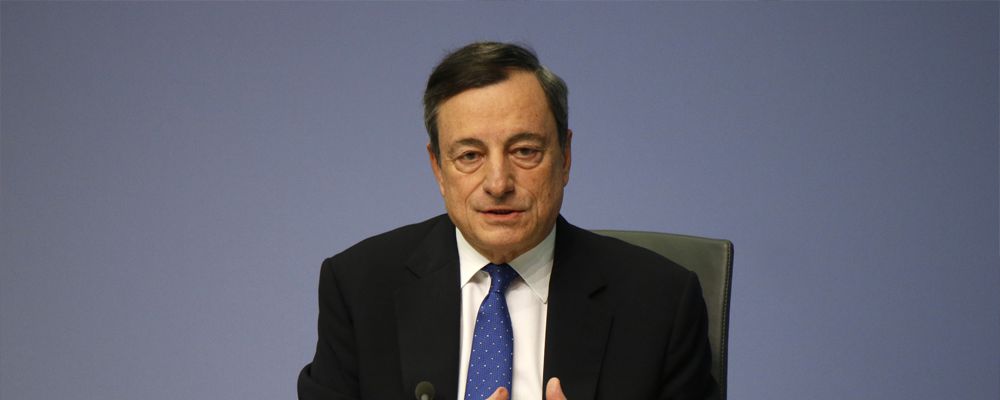Mario where is your big bazooka?
- Friday, July 5, 2019
 There are concerns that if Europe falls into a recessionary phase, the European Central Bank (ECB) may not have the firepower to support the economy to the extent it may need to. The ECB shut down its QE bond purchasing programme last December under pressure from Germany and other northern European countries concerned about the return of inflation after a much-needed growth spurt in 2018. German 10-year Bunds are currently in negative yield territory at -0.2%. This shows the extent that investors will accept poor returns in order to find a safe haven for their cash. The spreads on the equivalent 10-year Italian Bond have risen 256 basis points or 2.76%.
There are concerns that if Europe falls into a recessionary phase, the European Central Bank (ECB) may not have the firepower to support the economy to the extent it may need to. The ECB shut down its QE bond purchasing programme last December under pressure from Germany and other northern European countries concerned about the return of inflation after a much-needed growth spurt in 2018. German 10-year Bunds are currently in negative yield territory at -0.2%. This shows the extent that investors will accept poor returns in order to find a safe haven for their cash. The spreads on the equivalent 10-year Italian Bond have risen 256 basis points or 2.76%.
Much of recent Eurozone growth has come from the ECB quantitative easing programme (QE). The ECB was purchasing €80bn of bonds each month to place cash into the economy. The slowing of the Eurozone economy coincides with the ending of the QE programme in December. This clearly suggests that the programme has ended too early. With interest rates already at -0.4% where can the ECB go to re-stimulate growth?
The end of QE means that there is now no longer a buyer of last resort standing behind Eurozone debt markets and particularly the Italian bond market. The ECB is not allowed to buy the bonds of a country that is in distress without the support of the Bundestag.
Germany may relent on renewing the QE programme if a downturn hits the Eurozone economy. With bonds now trading at negative yields there is a limit to the impact of bond purchasing.
Mario Draghi, the President of the ECB, has few options to support the Eurozone. The monetary union is composed of countries with vastly differing levels of debt and no common budget or borrowing. The Euro exposes the weaker states to high currency values and the stronger states to low interest rates.
The end of European QE means that Italy is without a major buyer of its bonds. A sudden lack of confidence could cause a spike in bond yields hitting the capital ratios of the Italian banks holding Italian national debt. A co-ordinated and massive stimulus package is restricted by the EU Stability Pact which may be the one thing that the EU will need to do if the ECB is impotent.
The International Monetary Fund (IMF) chief Ms Christine Lagarde is concerned about the lack of monetary, fiscal and banking union in the Eurozone. She sees it as vulnerable to external shocks or another financial crisis. Ms Lagarde has called for a single market in finance in order to give a Pan-European guarantee on bank deposits. Something Germany will not support.

Chris Davies
Chartered Financial AdviserChris is a Chartered Independent Financial Adviser and leads the investment team.
About Estate Capital
Financial Services
Our Contacts
7 Uplands Crescent,
Swansea, South Wales,
SA2 0PA.
Tel: 01792 477763
